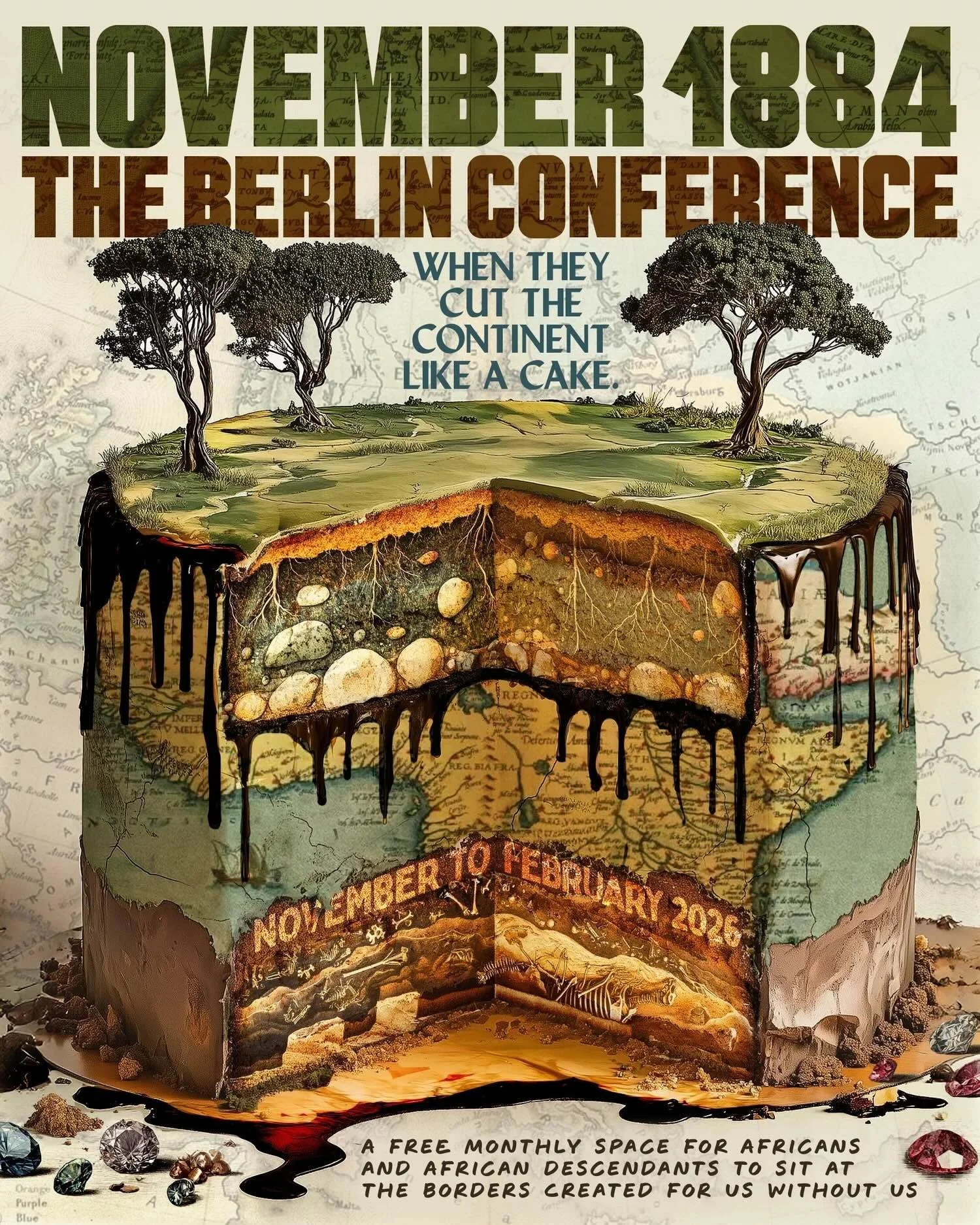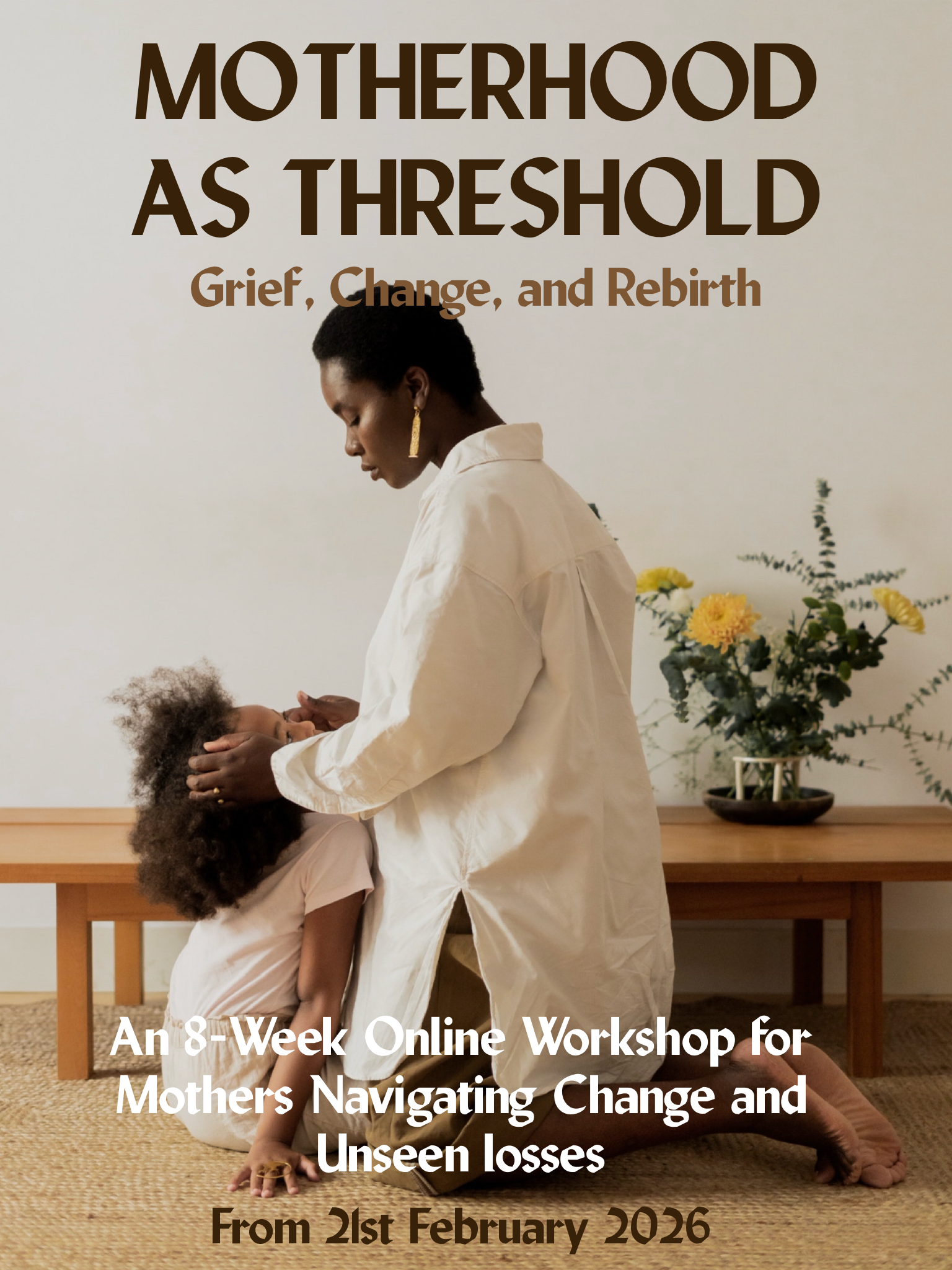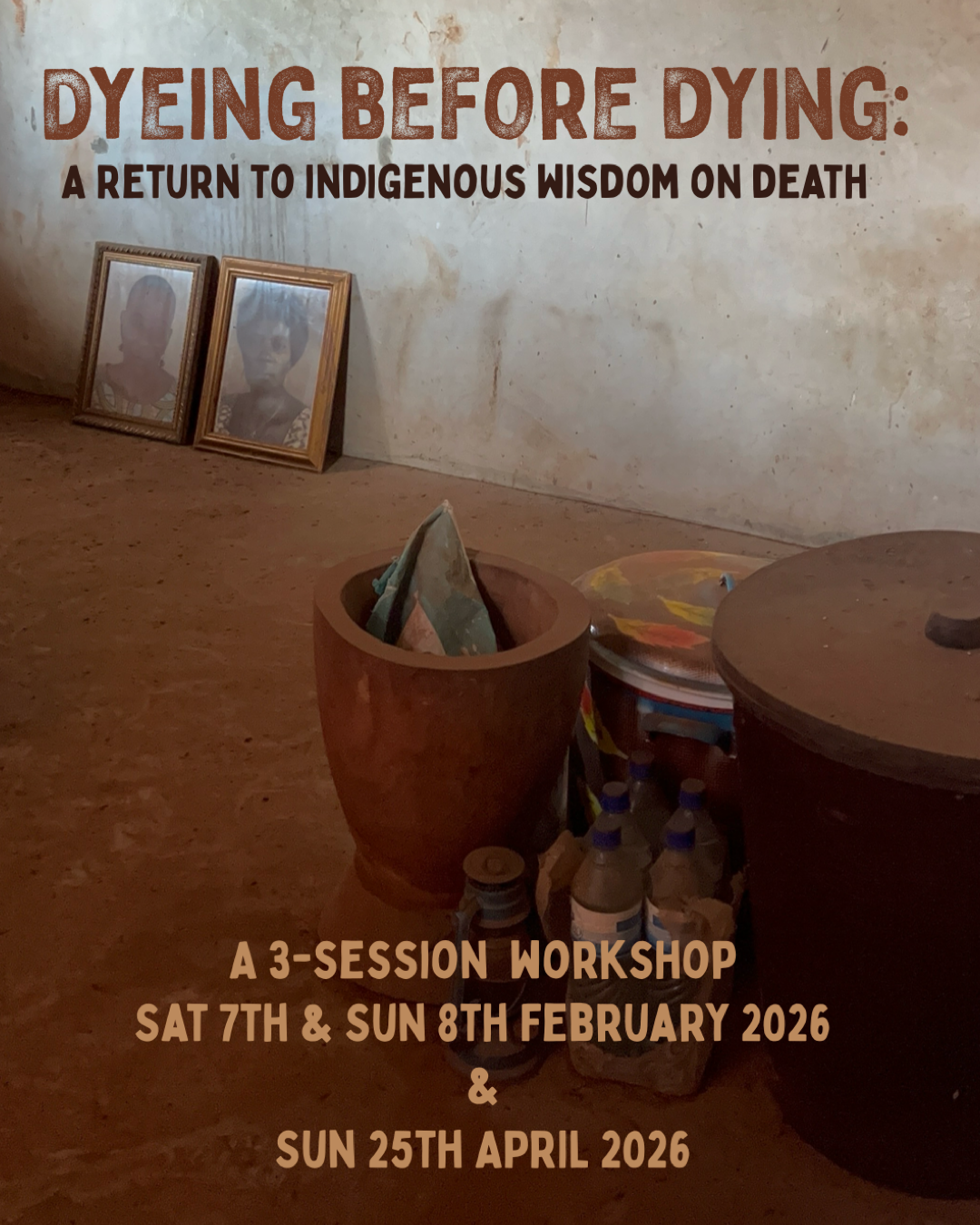There are many doorways,
the world itself is made of thresholds,
place of crossing, of return, becoming.
There is never only one way in.
Only one way of thinking and doing.
Only one way of seeing and living.
Each opening, closure, invites us to pause and listen to the movement of life, death and transformation. To notice what is ending and what is asking to begin.
My work lives in these crossings.
Rooted in indigenous and vernacular ways of knowing, I teach and guide collective spaces where we meet grief, trauma and transformation as teachers, companions on the path of remembering and re-membering.
This is a space of many thresholds.
A space of learning, of returning, of reweaving our ways of being human in an ever changing and moving world.
A space of reindigenization.
CURRENT COURSES & WORKSHOPS
VIEW ALL COURSES

What the participants say…
About Tobi
Tobi was born and raised in Benin. She is a mender, weaver, and story keeper, roles carried through lineage and collective life. Movement and displacement have been integral to her life, shaping her identity. Growing up across the West African sub-region and living in North Africa, notably Tunisia, she has personally experienced the ethnic, inter-religious, and social divisions rooted in the continent's colonial trauma.
Now based in Portugal after many years in Germany, Tobi works at the crossroads of grief, embodiment, and collective life. She teaches and facilitates group spaces that invite of knowing, particularly within Eurocentric societies that have long separated body from spirit, individual from collective and grief from public life and spaces.
Her work is grounded in reindigenization as a living practice in a colonized world: remembering how grief, death, politics, creativity, and spirituality are interconnected rather than fragmented. Through somatic and ritual-beaded approaches she supports communities, practitioners and facilitators in meeting grief not as a pathology, but as a relational and collective experience that carries knowledge.
Tobi is the founder of Collective Resonance™, a grief program that trains facilitators to hold space for collective grief processes and acknowledge systemic grief. This program centers the body, lineage, and context, and asks how we tend to griefs that are not only connected to human loss, griefs that are the intersection of race, gender, class, ability or even ecological grief. And also how we might tend to grief in ways that restore dignity, belonging, and responsibility to one another.

Join My Newsletter
If you would like to receive my writings, and updates about courses, workshops and all my offerings, you are welcome to join my newsletter.
I write about grief, death, indigeneity, vernacular way of knowing and the thresholds we meet in our lives and work.
My emails are infrequent, thoughtful and meant to nourish.











